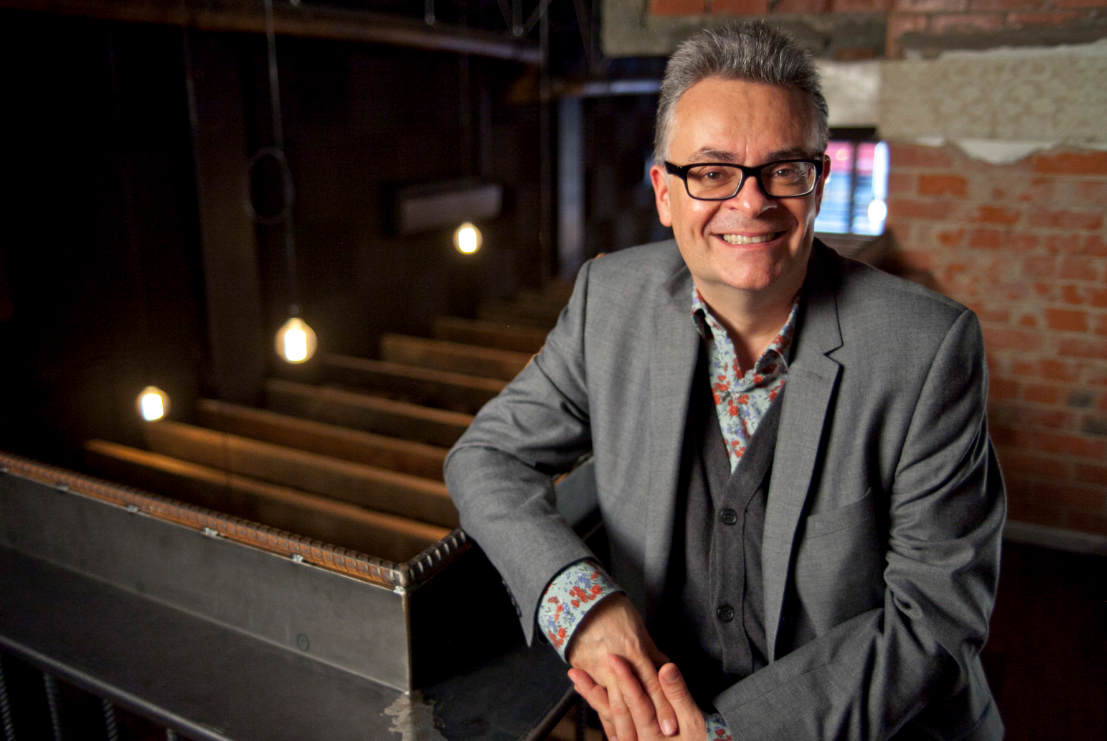Unsound Adelaide Artistic Director David Sefton on why electronic music should rage against the machine

This weekend’s Unsound Adelaide, the local instalment of the global experimental and electronic music festival (November 17— 19) includes the inaugural Discourse Program of panels.
Presented by The Bob Hawke Prime Ministerial Centre at the UniSA City West Campus in North Terrace, It complements the festival’s concerts, club nights, audio-visual displays and sound installations.
Long a key part of UnSound in New York and Krakow, it provides a context for the performances and a space where audience and artists can interact.
Artistic Director David Sefton tells TMN, “There’s no single theme as such but it’s put together with the Unsound crowd in mind.
“We’ve already seen a great deal of discussion on social media around some of the topics so we’re anticipating some extremely lively interaction!”
Leading off the discussions is From Daleks To Noise, which puts the focus on South Australian-based electronic music pioneer Tristram Cary, who died in 2008 aged 82
Born in the UK and initially a film and TV composer for the BBC, he became the father of British electronic music and founded the electronic music studio at the Royal College of Music, London
Clearly ahead of his time, his wide achievements included incidental music for the Doctor Who series and whose technology included the VCS3 synthesizer played by Pink Floyd on Dark Side of the Moon as well as on works by Brian Eno, King Crimson, White Noise and Jean Michel Jarre.
Cary moved to Adelaide in the early ‘70s for a teaching post at Adelaide University, where he continued his work in electronicmusic (and set up a studio in the city) and was awarded an Order of Australia and a doctorate in music.
Presenters Christian Haines and Gabriella Smart give insight into his work and demonstrate his revolutionary technology live.
One wonders what Adelaide as a city had on his work. Sefton responds, “It’s a good question – it clearly gave him the opportunity to develop both his work and his technology which I imagine was a large part of his decision to stay.”
Adelaide was also a place where its creators also had to build their own instruments.
Sefton agrees: “There’s no question that people like Tristram Cary were as much inventors as composers – their equipment didn’t exist so they had to create it to make the work.”
In Permutations of Performance, Robin Fox, Kara-Lis Coverdale, Nate Young of Wolf Eyes and Errorsmith discuss what it means to play electronic and experimental music live, if live is more important than recordings, how the sonics are affected by visuals, and future trends.
German-born Chile-based Uwe Schmidt aka Atom aka Senor Coconut chats to Adelaide. Unsound’s Mat Schulz about his early influences, the effect of geographical dislocation on his art, how he makes music and his impact on everything from Kraftwerk to Latin music via techno.
The Communities has Berlin-based U.S. artist Colin Self, Guiseppe Faraone of Adelaide-based queer collective ClubSync and Polish Unsound director Gosia Płysa on the role electronics and experimental music plays in politics, protest and activism in these turbulent times.
The Sunday sessions kick off with Australian experimental musician Dave Burraston on getting into modular synthesis … without going broke.
The acclaimed Holly Herndon, making her Australian debut, will cover topics with Unsound’s Gosia Plysa as making emotional music via a laptop, our complex relationship to technology, how and why politics infuses her music
Mat Dryhurst discusses how decentralised tech could learn a great deal from utopian musical crews of different eras, such as AACM, Dischord and Underground Resistance, and speculates on what might happen if different crews had the tech available to fully manifest these visions (implying that it may soon exist).
David Sefton moderates the On The Road panel which asks if music becoming a precarious career due to falling physical sales makes for bad art, how to create when you have to be constantly on the road, rising obstacles to world touring as well as the benefits and negative sides of artists gathering in creative expat enclaves such as Berlin.
Of this issue, what particularly worries Sefton?
“I think we’re seeing some unhelpful trends in visas and regulations governing travel that make life more difficult for touring artists. Tightening security too.”

































